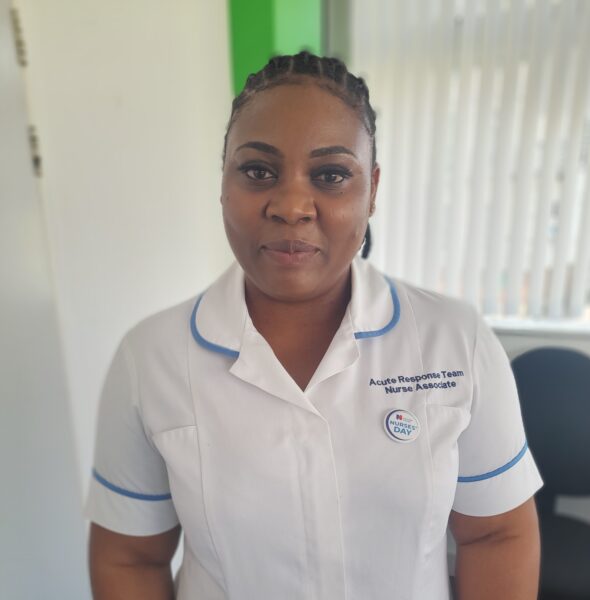May the force be with you
As we mark 75 years of the NHS, it’s important we inspire the next generation of NHS colleagues to be there for us, when we need them. KCHFT’s academy is doing just that.
Kate Rumsby spoke to Laura Hoare and Emily Lillis, Learning Disability Nurses, who graduated from our clinical academy about their specialist line of work and how using a Stars Wars creative approach is just one of the ways to connect to patients.
 “I really wasn’t familiar with learning disability nursing before reading about the apprenticeship programme and so it wasn’t the career I had planned for, but it turned out my experience and skills were really well matched,” explains Laura, 37.
“I really wasn’t familiar with learning disability nursing before reading about the apprenticeship programme and so it wasn’t the career I had planned for, but it turned out my experience and skills were really well matched,” explains Laura, 37.
Previously a care coordinator for the Children’s Therapy Team, Laura had experience supporting children with complex health needs before she applied for the learning disability nursing apprenticeship.
After graduating in December 2022, she is now a fully qualified learning disability nurse working in the Ashford, Canterbury and Coastal Community Learning Disability Team.
She said: “Learning disability nursing requires a very person-centred approach. You need to come up with personalised solutions to different health issues on a daily basis. When I’m helping people with weight issues, I might design a healthy eating session for them and we’ll design some meals together. I’ll try and make it very visual and interactive for them.
“I’ll make sure any leaflets and resources are adapted in an easy-read style for the person I am supporting. If someone likes Star Wars, I might theme the information for them so it’s more appealing to read. If someone needs to go into hospital, I’ll make sure they have their hospital passport with all their likes and dislikes and any additional information that will help the staff address any anxieties.”
Symptoms of health problems can be difficult for people with learning disabilities to understand and explain, meaning health issues could be missed, explains Laura:
“You’re speaking up for people who might not be able to do that for themselves. It’s about making sure they have the same rights as anybody else. We help make them feel safe and address their needs on a personal basis.”
Emily Lillis, 28, knew she wanted to become a registered learning disability nurse after her experience working in a supported living setting.
“Before joining KCHFT as a clinical support worker, I helped people with complex health issues in supported housing. Through that role I had a lot of contact with the learning disability nurse in the local hospital and I saw how valuable their skills and knowledge were to the outcome of the patients.”
For Emily, tackling misconceptions around learning disabilities and reducing health inequalities through her role as a learning disability nurse is so important.
Part of the learning disability nursing apprenticeship programme, delivered through Greenwich University, involved placements based in different community settings, meaning Emily and Laura were able
to see the wider benefits learning disability nursing can bring to the community.
Emily explains: “We’ve been on placements from specialist schools to prisons. What has been so surprising, is that we’ve even found
that healthcare professionals in those settings have not been very familiar with the role of learning disability nurses and have really valued our input when we’ve visited.
“We’re already able to make such a difference and I‘m looking forward to continuing to do that now as a fully qualified member of the community learning disability team.”





